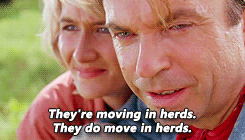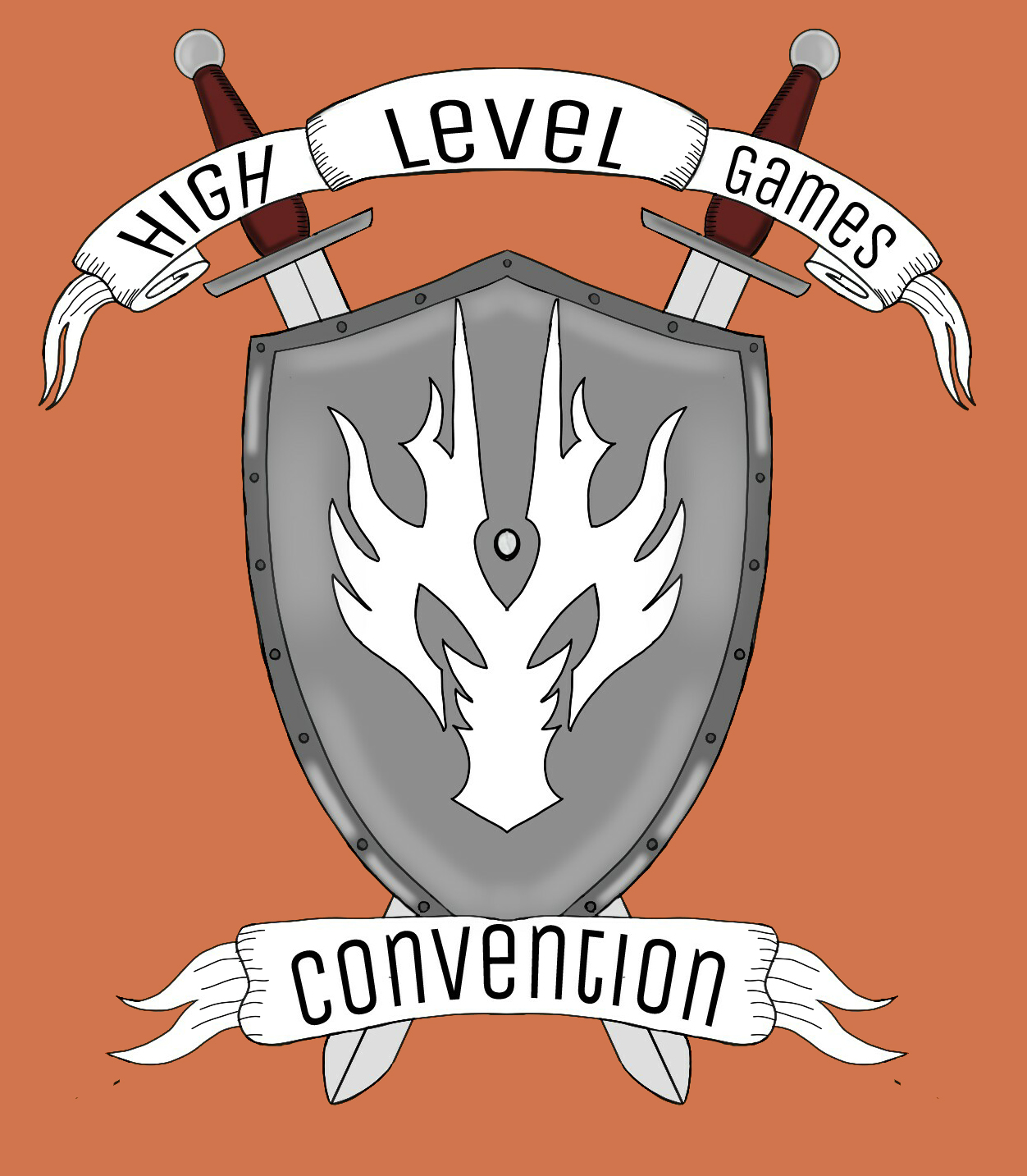LARPing with a chronic illness isn’t easy, especially when the symptoms start long before you even know what you’re dealing with. I remember the long car ride back from North Jersey. It was years before the car accident. There I was with a migraine, struggling not to throw up when I should have been celebrating my recent engagement. Chronic pain was in my life, but I was about to commit to help run a LARP and start a life with someone.
I took my cue from a lot of other people: losing weight was as simple as doing what I had been doing – working out and eating better. (Or not eating because I felt pretty sick.) No one knew what to do, so they downplayed it. I kept telling myself nothing was really wrong with me, and my then-partner and a family member both pointed out that after all these doctors, nothing was really working so they were obviously just trying to make some money.
I later saw a friend go through it with all the pills, the insurance company that let her down, and the suicide. Every time I look at how many pills I need to take just to stay functional now, I think about that and worry. But the pills work for me enough to work and do some forms of LARP.
Of all the hobbies I wish I wasn’t “allergic” to, LARP’s number one. A weekend outside at a scouting camp sounds like a lot of fun, especially when the weather’s nice. (Fall LARPing used to be my favorite.) But after the car accidents, all of that fully changed. Whether it was allergies, activity, lack of sleep, or a combination, I would always leave feeling worse than I started, and by worse I mean I could barely drive home, kept throwing up, etc.
In some LARP cultures, that’s part of it, like the burn of a great workout. You make the most of your time and you push yourself. Unfortunately, it took me years to learn that I just can’t do that. I committed to (and by that I mean ‘spent thousands on’) finding diagnoses and starting real treatment because when the pain was bad enough to put me out of commission when I was just sitting in a chair all day, it was find a cure or stop working. And LARP and its related social life seemed pretty damn trivial at that point.
I sat in the car and slept while everyone else ate on that car ride back from North Jersey. When we got home, I puked in the driveway and made myself stay awake long enough to post happy engagement news on Facebook. I willingly entered multiple situations in which my wellbeing was not a priority, which is the worst thing you can do when you have a chronic illness. For women in particular, though, that’s just what’s expected.
Years later, that relationship ended. But my other unhealthy relationship – the one I have with chronic pain – isn’t divorceable. So I’m trying to work around it and understand that not everyone can stick around with the life-altering difficulties that illness brings along.
Here are some things that some LARPers with chronic illness wished other people knew. I wrote this out so other LARPers with chronic illnesses know they are not alone, and also so game organizers and friends can understand what the experience is like.
Many chronic illnesses are invisible.
My illnesses and their symptoms are invisible. I might simply seem a little out of breath when I’m running up a hill with a LARP shield and all that gear on, but for every hill I scale, I spend longer in bed recovering or throwing up at work because of out-of-control inflammation.
Games about physical strength can be challenging for LARPers with chronic illnesses, even if they are playing support characters or non-combatants.
Games and game cultures that reward battle prowess encourage some to stay in shape and eat healthy, which is wonderful! However, they are not always a good fit for a LARPer with chronic pain. In real life, society values able-bodied people more. It’s tough to see that reflected in fake life.
As a LARPer in this type of game, I focused on other ways to participate and wield power or influence, and that helped me considerably. However, not every game offers options, and ultimately the game culture of combatants having more value looms. (I even see this carried over with me into different LARP styles because it is so pervasive.)
Some days are better than others.
Yesterday I felt amazing. I had to stop myself from overdoing it and cleaning my entire apartment because I know that over-activity comes at a price. When I’m at a LARP (regardless of physical activity level for that particular game), it’s even harder to keep that impulse in check. Like most people with chronic pain, I want an active and social life, but my pain often gets in the way – even on good days.

affordable healthcare + meds that work = more good days
Some days are awful. I commute from my bed to my chair for work, and there are times when even this is a struggle. I’ve LARPed in multiple styles on these types of days, and the other participants often had no idea. It’s very difficult for people to understand that some days are easier than others, especially since they expect consistency out of me and my LARP characters.
Chronic illness and depression are BFFs.
Guess what happens when you can’t get out of bed all day or when you realize you can no longer physically attend your regular LARP? You feel pretty defeated. I’m pretty good at focusing on doing what I can, but some days the perfect storm adds up. This week, for example, there was a snowstorm and the weather intensified some of my symptoms, so on top of feeling pain, I was very isolated. I was a day late on a deadline for a LARP-related project, and I got very angry with myself.
I’m part of the 1.5% of Americans who have dysthymia, a persistent, low-grade form of depression. Thanks to chronic illness, this hung around even after I got the rest of my life in order, and I was disappointed to find that fixing my life could not fix my body, nor the perfectly logical mental health issues that occur when your body prevents you from doing social things.
Weight gain or loss is often a symptom of chronic illness, not the cause.
In geek culture, we LARPers are especially sensitive to the weight gain stereotype. What even many medical professionals fail to disclose early in the diagnosis process is that weight gain or loss can happen as a symptom of a mental illness. In campaign LARPs and other longstanding LARP communities, weight gain is noticeable over time.
 “What happened to her?”
“What happened to her?”- “She really let herself go.”
- “Why doesn’t her boyfriend say something to her about her weight?”
- “She never eats at [name of LARP]. Is she anorexic or something?”
- “I don’t understand how she eats like a bird at feast but stays so fat.”
- “She doesn’t have a neck.”
These are just a few things I’ve overheard men say about myself and other women LARPers who also have chronic illnesses, and these things are not okay. It’s disgusting that I even have to point out that these things are not okay.
Overall, chronic illness affects women more than men.
According to womenshealth.gov, one in five American women have a disability, including chronic illnesses. For women of color, these illnesses become a ‘triple threat,’
Transgender women, queer women, women of color, and other marginalized groups of women already experience an increase in stress and pressure that can negatively affect mental and physical health. A chronic illness is a further marginalization.
Many LARP communities now contain more women and nonbinary individuals than in the past. (Racial inclusivity is still lacking, and that is another important topic to be addressed.) Given these statistics, it’s highly likely that your LARP community includes many women with chronic illnesses and disabilities.
When I see women with visible disabilities (indicated by canes, wheelchairs, and walkers) treated poorly in LARP communities, the only incentive I have to out myself as a woman with invisible illnesses is in private solidarity with them.
If LARP communities treat women with visible disabilities as an inconvenience, I have no reason to think they will be kind to me, let alone accommodating, and after a history of doctors telling me it’s all in my head (unfortunately familiar scenario to almost all women with illnesses, even temporary), I have to think hard about where I place my LARP efforts and time.
A woman’s menstrual cycle can trigger chronic illness symptoms, or even be at the center of the issue.
In many cultures that LARP (including mine, the United States), it’s still taboo to talk about menstruation / periods. This is changing as more young people LARP (thank you, young people!), but it presents a big problem for women with chronic illnesses. For myself and many others with chronic illness issues, ‘that time of the month’ isn’t simply a minor inconvenience – it can double the symptoms and onset of pain.

For some women, their health issues are centered around this function, and they’re made to feel like they don’t really have illnesses or issues like the rest of us because their debilitating condition only happens monthly. Plus, it’s hard to talk about for some, especially if the LARP game organizers are men.
It helps me to surround myself with women LARPers I trust, but I can tell it’s hard for some younger women to understand how an older woman might not predict or understand exactly how her body works. That’s because it changes with illness and over time, just like living situations and even aspects of personalities.
When chronic illness affects men, invisibility often increases.
In a patriarchy, men are expected to be tough all the time. This is magnified in a LARP centering around combat. Men who have chronic illnesses may be less vocal about pain, and this causes them to suffer in silence.
The “LARP coma” may stretch well into the work week for someone with chronic pain.
Most LARPs that last a day or more require an intense amount of activity: physically, emotionally, and/or mentally. Even healthy LARPers often “LARP coma,” or sleep for a day or more to recover. Anyone who works Monday after LARP knows that the fatigue can stretch into the work week, too.
Lots of people with chronic illnesses have to deal with fatigue as a result of existing. Factor in other meds (like the muscle relaxers that allow me to walk without pain) and you’ve got a LARP fatigue that’s long lasting.
People with some chronic illnesses have trouble with various types of weather or temperatures.
One of my first autoimmune disease symptoms was trouble with cold. Despite appropriate insulation, my extremities just couldn’t get warm, even in the summer, and my hands would turn different colors. I’ve LARPed with others who have extreme sun sensitivity as well. And like millions of others, I have allergies – but with autoimmune issues, my allergies trigger additional inflammation.

I love you, Thor, but my arthritis gets bad when it’s stormy out.
For others, even the time of day can have an impact on whether a LARP or its scenarios are doable. Examples include insomnia or night blindness.
Chronic illness takes years to diagnose, so some sufferers do not have a label for their pain.
The worst part of my chronic illness journey was not knowing. When you’re surrounded by doctors who primarily don’t believe there’s anything wrong – yet you know something is terribly wrong – that in-limbo diagnosis period is tough. I still haven’t convinced the doctors to do all the testing they should!

As a result, it feels pretty awful when saying, “I am not going to be able to do that one because I have chronic pain.” It’s a lot easier to say, “I have rheumatoid arthritis, so holding on to a weapon for an hour is going to be a challenge for me.”
I’ve had chronic pain for most of my LARPing career. I retired from my favorite fantasy boffer campaign game before I had a diagnosis, and it felt awful. I still felt like I was making excuses for something I was perfectly entitled to do. Once I got diagnoses, however, I felt a lot better about the whole thing.
In some instances, people with pain from unknown sources need at least as much support as people who know what’s going on with their bodies, especially in a LARP context where scenarios develop much faster than chronic illness conditions.
LARPers age, and sometimes develop chronic illnesses.
Some chronic illnesses are more prevalent in different age groups. I was diagnosed with hypothyroidism, rheumatoid arthritis, and PCOS at age 35. And even if I hadn’t been, my body would still have aged.
Each decade brings with it the possibility of new illness symptoms. Mental illnesses may present more in the 20s; hormonal and autoimmune issues in the 30s, and so on. As we stay in our LARP communities and age there, we need to support each other and cope together.
I’m not saying every LARP community must accommodate every possible bodily change and status, but it helped me a lot when someone said to me, “I understand if this just isn’t the right play style for you anymore.”
Some LARPs are just off-limits to chronic pain sufferers.
Some LARPs take place in difficult terrain or confined spaces. LARPs are various, and no person (let alone someone with a chronic illness) expects to be able to be capable of all LARP scenarios. Some of the toughest battlefield LARPers in the world, after all, probably couldn’t handle some of the emotionally intense scenes on my LARPing resume – just as I couldn’t handle their most intense battle exchanges.
That doesn’t mean it’s not a big bummer that you can’t go to all the things. I was seriously considering attending this LARP on the USS New Jersey (only 30 minutes from my home), but decided it might not be a good one for my physical health. I’d have to be on some serious meds the whole time, and the LARP hangover just from using my left trapezius to climb ladders would have me in a lot of pain.
Mocking someone’s out-of-game pain is not okay.
One time, I’d finished a battle in-game, and because of out-of-game pain (which was obviously out-of-game, as my character could heal herself…), I was limping. My lower back felt like it was on fire. I was also one of the last two people out of the combat zone, because I was playing a healer and because the pain hurt so I was a little slow.
 What happened next? Someone else made a sex joke about me and the other person walking with me.
What happened next? Someone else made a sex joke about me and the other person walking with me.
That stuck with me as one of the most cruel and unwelcoming things anyone has ever said to me at a LARP. What’s worse, I know it wouldn’t have been said if my real-life partner had been there, or any male ally who respects me, or any staff member for that matter.
That was the moment I knew others could see my pain; it was bad enough that it wasn’t always invisible, and I started to feel isolated and anxious.
Some people need to have a service animal with them at all times.
From anxiety to seizure prediction to physical stability, some health issues require people to need service animals. Registered service animals are to be permitted in airports, restaurants, and other locations in which you traditionally will not find animals like dogs. Some also have emotional support animals.

Service dogs are amazing. When they’re working, they wear service doggo vests.
While my dog hasn’t done any formal training and doesn’t LARP with me, I consider him fundamental to my emotional support. For various reasons including and beyond the mental landscape of living with a chronic illness, my dog uses body language to immediately validate the pain I am experiencing. For me, this is essential – and it’s all done without a queue.
Others have more stringent needs and may need to bring their dogs to LARP with them. Both the LARP owner and the LARPer should review possible scenarios, laws about service animals, and the rules of the venue being used.
Medication and self-care may be crucial to LARPers with chronic pain.
FOMO (fear of missing out) plagues most people, and when you have a chronic illness, it’s even worse. You can’t overcommit when it comes to your calendar, and pain isn’t always predictable. Nowadays at LARPs, I need to get a full night of sleep in or I just can’t safely participate the next day.
Not all LARPs or systems are built for that.
If your game doesn’t have defined policies about in-game versus out-of-game items, it can be especially troubling. A “thief” taking real-life medications from someone’s bag is not okay, but without defined rules, it’s a thing that happens.
In the United States, healthcare is shitty and it is not designed to empower people who are in pain.
This is especially important for our international LARPer friends. Stigma surrounding chronic and mental health issues in the United States is underscored by the complete lack of control we have over our healthcare. If the chronic illness has taught me one thing, it’s that people don’t want to deal with it (or me) because it’s a helpless situation.
I function pretty well with adequate medical care, but getting that care is almost as much of a struggle as it is to deal with the actual illness. It’s overwhelming to me and anyone who listens to me talk about it, so I’ve mainly tried to deal with it on my own or by talking to people who go through the same thing.
Imagine what it feels like to know that your government takes active steps to ensure you’ll die faster. That’s how it feels to be me.
LARP can be a healthy escape for someone suffering with pain on a day-to-day basis.
When I LARP, it’s not to escape pain as much as powerlessness.
Others may feel differently, but for me, depending on a system set up to fail me is the ultimate insult and erasure of agency. LARP is the only scenario in which I am actually in control of my own destiny to any small degree.
Dealing with even one chronic illness is a part or full-time job.
Especially while you’re still undergoing diagnosis, scheduling all that stuff is a full-time job. Where does my doctor want me to go vs. where my insurance wants to send me? How much does it cost? How much per week am I spending on copays? In addition to scheduling appointments and practically begging doctors to actually work together as a team (spoiler alert: they don’t), tracking meds and handling appointments is a second job.

And it’s exhausting.
For me, that means planning my LARP activities in more specific ways, learning to delegate, and saying no to some aspects of LARP, including social activities outside of LARP – which makes the isolation of chronic illness all the more prescient.
 Chronic illnesses like to hang out with one another.
Chronic illnesses like to hang out with one another.
Lots of people have multiple chronic illnesses. Some people have some that are visible and some that are not.
Unfortunately, chronic illnesses like to group up, which is why some people say they have “chronic illnesses” or “autoimmune diseases” that may affect their ability to LARP sometimes.
Chronic pain impacts self-esteem, LARP-related and otherwise.
Of all the things that contribute to impostor syndrome, chronic pain is the worst, mainly because I know it’s not something I can control or change. It’s affected me physically and socially, and those out-of-game (OOG) insults presented as in-game are just things I don’t have time for anymore. If those are present in a game, I don’t play the game. I need LARPs that support my personal development, not the opposite; it’s also a bonus to be in a community that allows people to empower each other.
OOG comments about weight, age, and physical characteristics related to my chronic illness? I don’t have time or energy for those, and if your game includes that kind of culture, others with chronic illnesses may feel the same way as I do.
LARPers with chronic pain may fear getting left behind.
Again, FOMO is real. Whether it’s not being able to keep up on a trail or missing out on some forum RP because your chronic illness decides you need fourteen hours of sleep that day, the worst feeling in the world as a LARPer with chronic pain is when you feel you’re letting someone else down or can’t put in an equal effort.
The fear of leaving your community behind is just as bad as the fear of being left behind.

This is why it’s so hard to walk away from a LARP scene due to chronic illness. That kind of thing takes honesty, bravery (you’re leaving a community, after all), and it involves potentially coping with a grieving process while you’re dealing with all those chronic health issues and anything else that may be going on in your life.

Take it from me: it’s not fun, even if you’re ready.
There are things you can do to make LARP more accessible for people with chronic illnesses.
- Adequately disclose and discuss the physical requirements for participating in your LARP. Note: Not all LARPs are for everyone, but setting expectations is greatly appreciated.
- State in your code of conduct that it is not acceptable to make fun of other LARPers in your game for out-of-game reasons or physical attributes.
- Encourage feedback and questions from your general community.
- Consider running a game with someone who has a chronic illness or politely solicit the feedback of an advocate in the LARP community. (Ask me: I know a few.)
- Consider an accessible location, such as a hotel conforming to ADA (or your country’s equivalent) standards.
- Do some research. Advocacy groups are very present online and they are happy to help you accommodate others’ needs.
- Read and listen to members of the LARP community. Here are a few LARPers I like to listen to when it comes to accessible game design for LARP and beyond:
- Shoshana Kessock
- Elsa S. Henry
- Erin Hawley
I’m sure that’s just a start, and these are also all gamers who live in my country and region, so I’d love to know about more.
This is far from an exhaustive list when it comes to LARPing with chronic illness, but I do intend for it to be a conversation starter, especially among those who participate in multi-day LARP experiences. I welcome your comments below.





